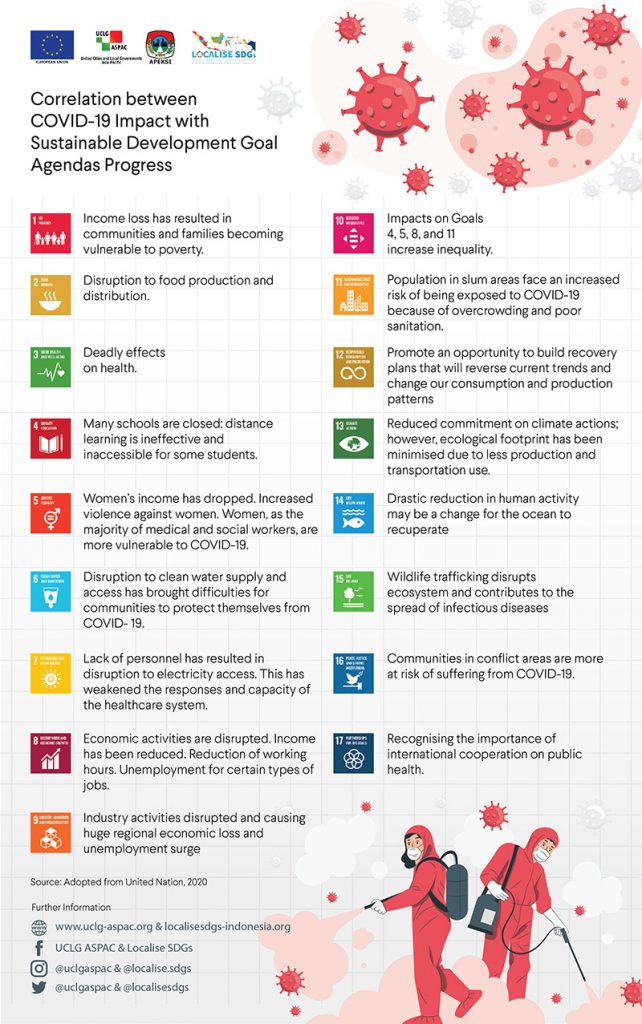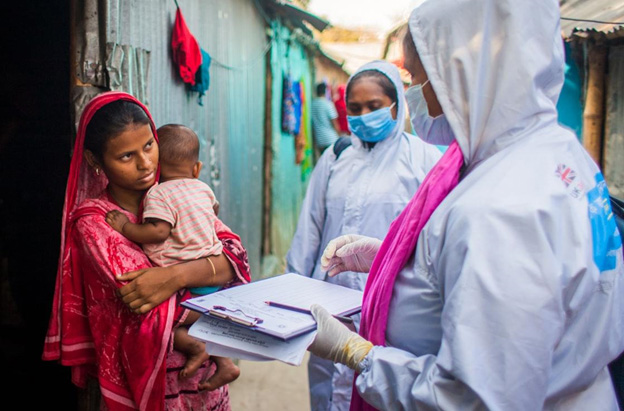136 million people were infected and more than 2.94 million were killed. It has been a year since the first Coronavirus Disease (COVID-19) was reported in Wuhan, China last November 2019. Since then, this pandemic has drastically changed the living order of the entire world’s population. In Indonesia alone, as of March 12, 2021, approximately a year since the first case was declared in the country, nearly 1.57 million cases have been recorded and more than 42.5 thousand people have died.
The Indonesian government is working to deal with the impact of COVID-19 which disrupting the whole economy and social activities. This pandemic has exposed the consequences of the deepening systemic inequality beyond our expectation. However, amid a devastating crisis, there is space for bold decisions. In the past months, the world has seen policymaking that seemed impossible just a few months ago.
This pandemic has markedly changed almost the entire core of government activities, including the provision of basic services (education, health, and employment) to citizens. All of these things are very important for the achievement of the sustainable development goals (SDGs).
UN ESCAP on Asia and the Pacific SDG Progress Report 2021 said, “The Asia-Pacific region is not on track to achieve any of the 17 SDGs by 2030. On its current trajectory, the region may achieve less than 10 per cent of the SDG targets.” It happened due to COVID-19 Pandemic that impacted almost all sustainable development goals efforts. Even so, COVID-19 has a huge impact on Goals 9 (Industry, Innovation and Infrastructure), 12 (Responsible Consumption and Production), 14 (Life Below Water) and 15 (Life on Land). Based on the research conducted by UCLG ASPAC Localise SDGs team, it also shown how COVID-19 affecting the Sustainable Development Goals progress.

Indonesian cities promote better resilience and sustainability during a pandemic
The COVID-19 pandemic forces governments around the world, including in Indonesia, to seek innovation and push government operating systems to achieve SDG targets. Using the business-as-usual approach is no longer an option.
The COVID-19 shocked multiple stakeholders in the city and created a paradigm shift in developing cities, particularly on ensuring the SDG targets achievement. Generally, there are 6 innovative approaches and best practices from Indonesia cities that possibly can be replicated by cities around the world. These are the social safety net, economic stimulus and incentives, basic services delivery improvement, local community empowerment, economic relaxation strategy, as well as advancing collaboration and information system.
Bengkulu City had a unique approach to social safety net by guaranteeing food security for the community through the utilization of idle land and yards as food-growing land. The city government collaborates with the Military District Command (Kodim), which is in line with the role of the Indonesian Armed Forces (TNI-AD) in supporting food security.
Bengkulu City also adopted a good practice on economic stimulus and incentives. Through the Regional Drinking Water Company, Bengkulu City freed the middle and lower class of society from water bills during the pandemic period. This incentive was given from March 2020 to February 2021. In order to ensure the delivery, the Bengkulu City government conducted a direct field survey in each household. There are at least 3000 customers in Bengkulu City (average water usage 30 m3) that received the incentive.
Several Indonesian city governments also improved their basic services delivery by improving and utilising telemedicine platforms. This idea was conducted due to the urgency in reaching the remote areas where health services are inaccessible. It is also useful to reduce the infection rate in black (uncontrolled infection rate) and red (high rate of infection) zone areas. Jambi City, Maluku Province, DKI Jakarta Province, and East Java Province are pioneers in mainstreaming this approach.
Another example of how Indonesian city/provincial governments thrive during the pandemic is reflected in how they can encourage collective work among communities. In Central Java Province, the governor encourages a community collaboration with “Jogo tonggo” program that focuses on the early identification, prevention, and reduction effort in facing COVID-19 spreading at the local level. They also monitor local activities that potentially contribute to the COVID-19 case surge.
Regarding economic relaxation, the best practice comes from Semarang City. In order to tackle the economic loss during the pandemic, the city government collaborated with an online platform, the Tumbasin.id, to provide daily citizens basic needs. Through this platform, citizens can easily connect with the local market trader and order their daily needs. The order is delivered to the citizens by utilizing the existing online transport system. By doing this, Semarang City fostered local economic activity to gradually improve the city’s economic condition.
A best practice also comes from Bogor regarding collaboration and information system improvement. During the pandemic, Bogor City Government developed a crowdfunding platform to generate a source of funding to help people who have lost their income during the pandemic and were not registered as beneficiaries of the social safety net program from the central government, the provincial government, or the Bogor City Government itself. It expected to reach 90.379 households that have not registered to the social safety net program and help them to provide their basic needs. This platform also reconnected donors, and boosted the solidarity among the rich and the poor in the city, and helped the city regain its confidence in facing COVID-19.
These are some examples of how the Indonesian local governments thrived during the pandemic. It clearly demonstrated that nothing is impossible, particularly in ensuring the implementation of sustainable development goals agenda. The success of these initiatives was possible because local government worked with their stakeholders and can be considered in future development strategies.
